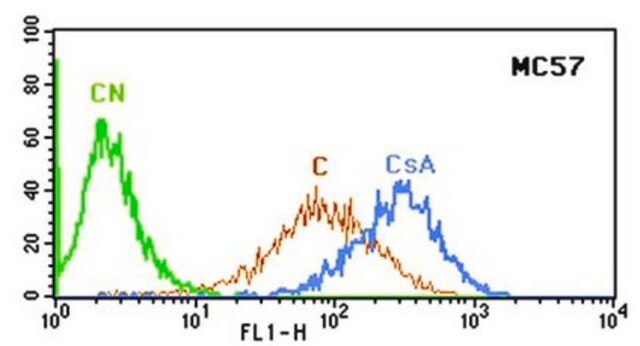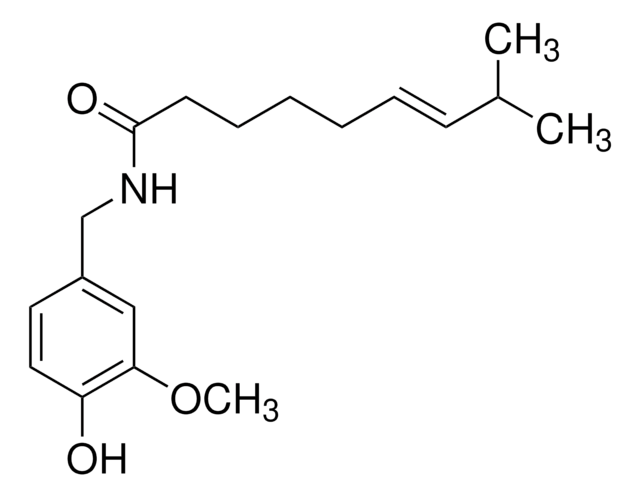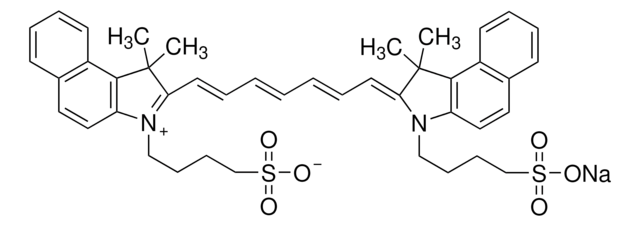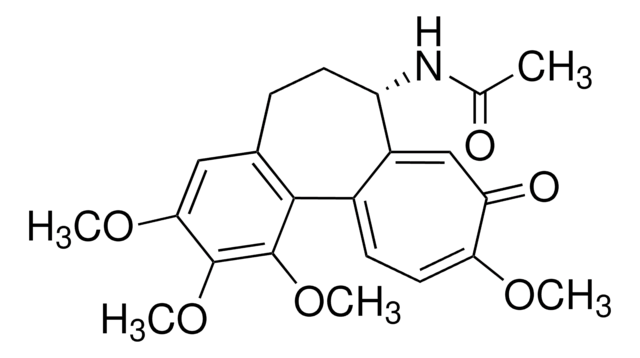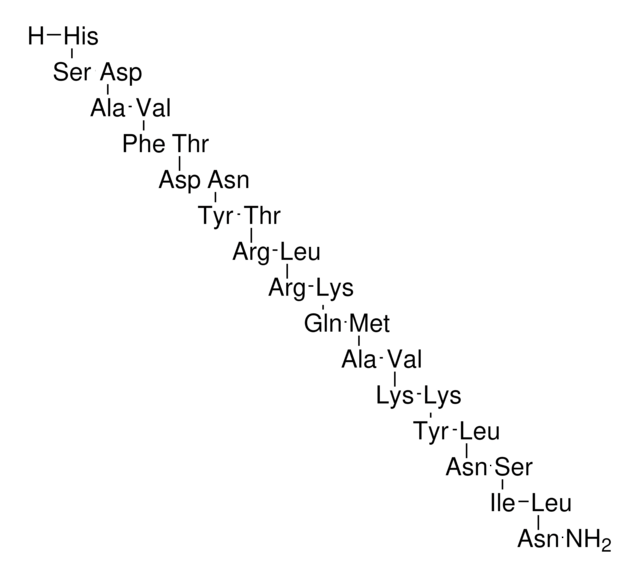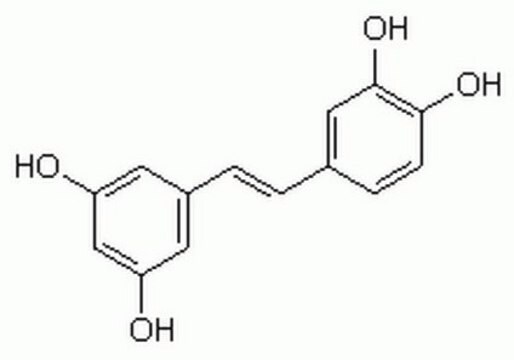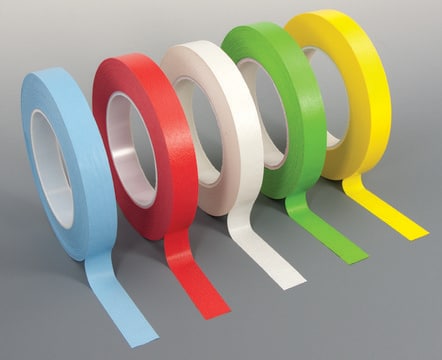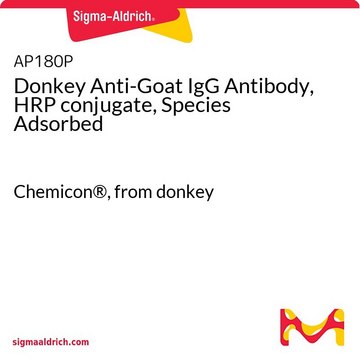추천 제품
생물학적 소스
mouse
Quality Level
결합
unconjugated
항체 형태
purified antibody
항체 생산 유형
primary antibodies
클론
CHK-166, monoclonal
분자량
calculated mol wt 138.7 kDa
정제법
using protein G
종 반응성
virus
포장
antibody small pack of 100 μL
기술
ELISA: suitable
inhibition assay: suitable
neutralization: suitable
동형
IgG2κ
에피토프 서열
Unknown
UniProt 수납 번호
배송 상태
dry ice
타겟 번역 후 변형
unmodified
일반 설명
Chikungunya virus (CHIKV) that causes distinctive polyarthritis or polyarthralgia with clinical features such as fever, maculopapular rash, and myalgia is transmitted by Aedes spp of mosquitoes. Immune compromised individuals may face serious complications, including encephalitis and mortality. CHIKV genome contains a single-stranded positive-sense RNA that encodes four non-structural proteins known as nsP1, nsP2, nsP3, and nsP4 and also five structural proteins that include a capsid protein, three envelope glycoproteins known as (E1, E2, and E3, and a small molecule known as 6K. The mature alphavirus particles express E1 and E2 heterodimers that form 80 trimeric spikes on the surface of the virion. The mature E2 protein contains three domains with immunoglobulin-like folds: N-terminal domain A, domain B at the tip; and the C-terminal domain C located proximal to the viral membrane. The ectodomain E1 protein consists of three domains known as D1, DII, and DIII. The DIII domain is an immunoglobulin-like domain connected to D1 and DII by a flexible linker. Both E1 and E2 proteins are responsible for virus entry into host cells. The E2 glycoprotein interacts with a cellular receptor, resulting in the virus internalization and the E1 glycoprotein mediates virus fusion to host cell under low pH conditions. Following the fusion of the viral envelope with the endosomal membrane, the viral genomic RNA is released into the cytoplasm and starts replicating. Clone CHK-166 is a moderately inhibitory antibody that protects Ifr -/- mice from lethal infection and when used with clone CHK-152 it provides viral resistance and extends the treatment window by up to 36 hours post infection. (Ref.: Zhang, R., et al. (2019). Cell Reports 28(10); 2647-2658; Pal, P., et al. (2013). PLoS Pathog. 9(4); e1003312).
특이성
Clone CHK-166 is a mouse monoclonal antibody that detects E1 protein of Chikungunya virus. It targets an epitope within the DII region of E1 protein, adjacent to the fusion loop.
면역원
Irf-7 deficient mice injected with La Reunion 2006 OPY-1 strain of Chikungunya virus (CHIKV-LR) and boosted with CHIKV virus-like particles.
애플리케이션
Quality Control Testing
Evaluated by ELISA with recombinant Chikungunya Virus E1 protein.
ELISA Analysis: Various dilutions of this antibody detected recombinant Chikungunya virus E1 protein.
Tested Applications
Inhibition Analysis: A representative lot inhibited CHIKV infection when added after virus adsorption to the cell surface. (Pal, P., et al. (2013). PLoS Pathog. 9(4):e1003312).
ELISA Analysis: A representative lot detected Chikungunya virus E1 in ELISA applications (Zhang, R., et al. (2019). Cell Rep. 28(10): 2647-2658.e5).
Neutralizing Analysis: A representative lot neutralized CHIKV and protected immunocompromised mice against disease. (Pal, P., et al. (2013). PLoS Pathog. 9(4):e1003312).
Note: Actual optimal working dilutions must be determined by end user as specimens, and experimental conditions may vary with the end user
Evaluated by ELISA with recombinant Chikungunya Virus E1 protein.
ELISA Analysis: Various dilutions of this antibody detected recombinant Chikungunya virus E1 protein.
Tested Applications
Inhibition Analysis: A representative lot inhibited CHIKV infection when added after virus adsorption to the cell surface. (Pal, P., et al. (2013). PLoS Pathog. 9(4):e1003312).
ELISA Analysis: A representative lot detected Chikungunya virus E1 in ELISA applications (Zhang, R., et al. (2019). Cell Rep. 28(10): 2647-2658.e5).
Neutralizing Analysis: A representative lot neutralized CHIKV and protected immunocompromised mice against disease. (Pal, P., et al. (2013). PLoS Pathog. 9(4):e1003312).
Note: Actual optimal working dilutions must be determined by end user as specimens, and experimental conditions may vary with the end user
Anti-Chikungunya virus E1, clone CHK-166, Cat. No. MABF3035, is a mouse monoclonal antibody that detects Chikungunya virus (CHIKV) E1 protein and is tested for use in ELISA, Inhibition, and Neutralizing assay.
물리적 형태
Purified mouse monoclonal antibody IgG2a in PBS without azide.
저장 및 안정성
Store at -10°C to -25°C. Handling Recommendations: Upon receipt and prior to removing the cap, centrifuge the vial and gently mix the solution. Aliquot into microcentrifuge tubes and store at -20°C. Avoid repeated freeze/thaw cycles, which may damage IgG and affect product performance.
기타 정보
Concentration: Please refer to the Certificate of Analysis for the lot-specific concentration.
면책조항
Unless otherwise stated in our catalog or other company documentation accompanying the product(s), our products are intended for research use only and are not to be used for any other purpose, which includes but is not limited to, unauthorized commercial uses, in vitro diagnostic uses, ex vivo or in vivo therapeutic uses or any type of consumption or application to humans or animals.
적합한 제품을 찾을 수 없으신가요?
당사의 제품 선택기 도구.을(를) 시도해 보세요.
Storage Class Code
12 - Non Combustible Liquids
WGK
WGK 2
Flash Point (°F)
Not applicable
Flash Point (°C)
Not applicable
시험 성적서(COA)
제품의 로트/배치 번호를 입력하여 시험 성적서(COA)을 검색하십시오. 로트 및 배치 번호는 제품 라벨에 있는 ‘로트’ 또는 ‘배치’라는 용어 뒤에서 찾을 수 있습니다.
자사의 과학자팀은 생명 과학, 재료 과학, 화학 합성, 크로마토그래피, 분석 및 기타 많은 영역을 포함한 모든 과학 분야에 경험이 있습니다..
고객지원팀으로 연락바랍니다.